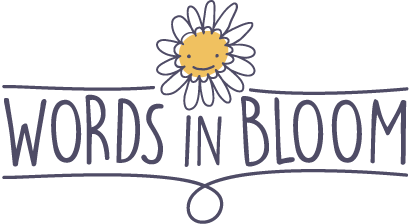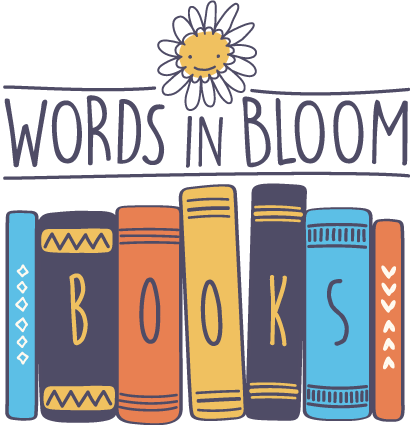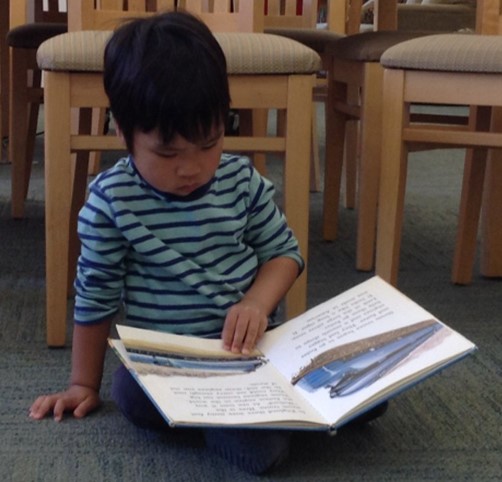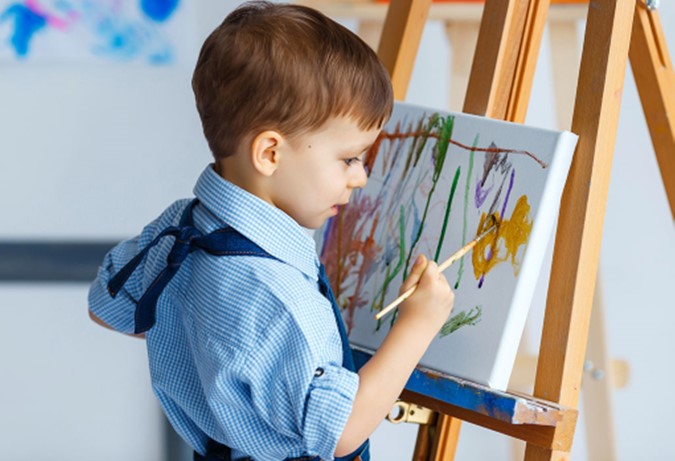
A Quick Guide to Your Child’s Speech and Language Development – 2 to 3 Years
 Speech and Language Milestones
Speech and Language Milestones
By 3 years, your child:
- makes sentences with three or more words
- clearly says early sounds like /b/, /p/, /m/, /h/, /w/, /n/, /t/, /d/ in words
- says words with two or more syllables or beats (“a-pple,” “po-ta-to”)
- uses descriptive words like “small,” “dirty,” “wet” or “cold”
- asks questions frequently using words like “who,” “what” and “where”
- answers simple questions
- enjoys looking at books
- sings parts of songs
- understands concepts of size and quantity like “big/little,” “a lot” and “more”
- remembers and understands familiar stories
- shows affection and concern for others
A referral to the Words in Bloom program may be needed if your child is not meeting most of these milestones.
Building Blocks for Developing Your Child’s Speech and Language Skills
- Speak to your child often, using complete sentences.
- Repeat what your child says using the correct sounds and words.
- Count familiar things to practice plurals and number concepts.
- Give your child many chances to choose things (clothes, toys, food, books) throughout the day.
- Sing songs that involve actions, taking turns, repetition and gestures.
- Ask questions about the pictures in books and about what is happening in the story.
- Use words that describe colour, shape, size or number as well as texture, taste, smell or sound.
- Help your child tell stories by asking questions that guide them through their storytelling.
The Importance of Play
Play is the most enjoyable way to promote your child’s speech and language skills.
- Children start to play cooperatively with other children at this stage.
- Young children love to play dress-up and pretend.
- Role play with your child - let them be the parent.
- Play “I Spy.” Be sure to use a variety of descriptive words, not just colours.
- Make a homemade book with your child:
- Include favourite objects by cutting up magazines, flyers or newspapers.
- Use photos of favourite people, objects and outings.
- Include items with texture or scent or make flaps to open.
 BOOKS
BOOKS
Best Book Types:
- Books with text that is very simple and sometimes repetitive
- Books with two to three lines per page
- Homemade books
- Books based on experienced events (bathtime, grocery shopping)
Observe Your Child:
- Wait and let your child be the first one to start talking about the book.
- Once a story has been heard several times, your child can begin to fill in words or phrases when you pause.
- Does your child have a favourite character or theme? Do they like books about zoo animals, kittens or families best?
Opt to Join In:
Join In:
- Take lots of turns back and forth. Say or do something and then wait for your child to take their turn.
- Talk about feelings while looking at different faces in books.
- Observe what your child is interested in and model new vocabulary while looking at the book with your child.
Keep Having Fun:
- Change the words in the book to make the story more interesting.
- Add your child’s name to the story to make it more exciting.
- Read the same book as many times as your child wants.
- Talk about the pictures. You don’t have to read the words in the book.
Some Suggestions:
- The Going to Bed Book by Sandra Boynton
- The Very Hungry Caterpillar by Eric Carle
- Dear Zoo by Rod Campbell
- All by Myself by Mercer Mayer
- Hop on Pop by Dr. Seuss
Did You Know?
- The more opportunities your child has to take turns in conversations, the stronger their language skills will be.
- Even though you may not understand everything your child says, acknowledging that you hear them and repeating back what you understand boosts confidence in talking.
- Children are like sponges, soaking up what you say and trying to imitate it. They can even learn more than one language at a time.
 Frequently Asked Questions
Frequently Asked Questions
Q: Should I be concerned if I don’t understand my child’s speech?
A: You should understand at least 50% of what your 2-year-old says and 75% by the time they turns 3. If you have concerns, consider having your child’s speech assessed by a speech-language pathologist.
Q: Do speech and language difficulties tend to run in the family?
A: Yes, studies show that it is common for a sibling, parent, or other family member of a child with speech and/or language difficulties to also have had similar difficulties. It is always best to have your child’s skills assessed if someone in your family has/had delays.
Q: Will speaking two languages at home cause a delay in speech and language development?
A: No, children are able to learn more than one language simultaneously, though they will often mix the two languages while learning them.
If you suspect your child is having difficulty communicating, don’t wait! Follow your instincts. Friendly, confidential help is only a call away.
Contact Words in Bloom by calling the EOHU at 613-933-1375 or at 1-800-267-7120.


